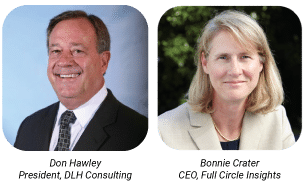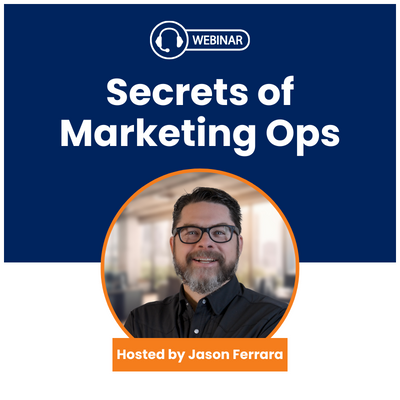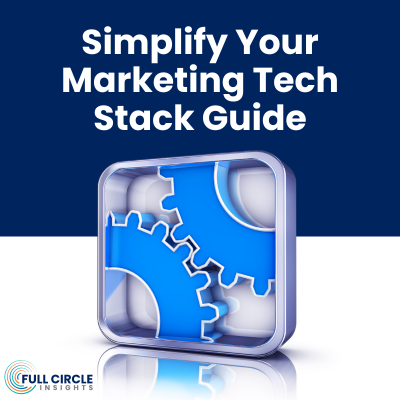An interview with Don Hawley – A 6-time CEO, 8-time CFO
This week I had a chance to catch up with experienced CEO and CFO, Don Hawley. I wanted to get his input on the relationship between the CFO and the CMO, and how marketers work best with a company’s finance management.
BC: As a former CFO, what kind of marketing performance information would have been useful to you?
DH: I had a partner who was a marketing executive with a strong finance data-orientation and was exceedingly open to learning about financial metrics. Honestly, as a CFO I had a dim view of marketing people’s analytical ability. Steve, my partner, changed that. He had a finite budget and he wanted to know what he should do more of and what he should do less of. We used the agency Chiat Day at the time, and Fred Goldberg, their President, was very analytical as well. As a key objective, we wanted to know what marketing and PR tools would work best. But at the time we were handicapped because we didn’t have Salesforce data or other tools, despite our desire to measure marketing performance.
Our meetings were very interesting for me as a CFO starting with round table discussions with the marketing people, me (CFO), our EVP, and our agency. Then we did a whiteboard exercise. We set goals — what we think we might get in “reach” and what we might achieve in sales.
At the time, our company, which was the toy company Worlds of Wonder, had a stated objective to go public early in our journey. So we were very interested in campaigns that would project a pre-public company. During our discussions, we developed an idea around supporting a new non-profit focused on missing and exploited children. As CFO in those meetings, I became a fan and we allocated funds to the program.
Shortly after that, our talking teddy bear toy, Teddy Ruxpin, found itself briefing congress on important issues related to missing and exploited children. The program developed a very progressive image for Worlds of Wonder which helped position us strongly in the market and helped set us up for going public.
Usually a CFO says the bottom line for the company is sales and related profits, but I learned from the marketing team how our image could really elevate our company and thus our perceived value. So that significantly impacted how I thought about marketing later on in my career.
BC: How did your CFO experience affect your CEO experience?
DH: That experience at Worlds of Wonder influenced me a great deal in my future role as CEO at NetsWork, a voice and data networking company where we were integrating voice and data solutions for companies. NetsWork was a bit of an elephant hunter where we sought big accounts and big partners.
The key learning from Worlds of Wonder was to project our company to be bigger than we really were. Our initial strategy at NetsWork was to ensure we had great technology by hiring great technologists. But my experience with projecting an image of a good corporate citizen translated into significant partnerships with Cisco and Wells Fargo early on.
We found that due to our technical acumen and positioning ourselves as a major player, even though we were small, we could create partnerships that propelled the growth of our company.
The lesson from Worlds of Wonder is that cross-pollination across execs in a company can work very well. Partnerships at that level are orchestrate-able.
As a CEO, I linked my CMO and CFO together because I found that so useful in my experience at the previous company. I helped the CFO to not be very negative towards marketing. And I asked them to co-present the marketing plan to me. I don’t think this is common, but I have seen this really work well in my career.
Had Full Circle existed when I was CFO and CEO, that would have been great. I think CFOs would welcome the kinds of tools that you are providing.
It’s interesting to me in thinking about your company; the CFO could or even should be your best friend. Most CFOs might want to cut discretionary costs, but your tools can really help explain marketing’s key role in developing revenue, profits and market value for the company. That’s a big opportunity.
BC: What mistakes have you seen CMOs make when working with CFOs?
DH: Most CMOs don’t come to the table empowered with data, and so there’s a great opportunity to arm the marketing people with a more analytical point of view. Because to the CFO, marketing may seem like a bottomless pile of wasted money. CFOs want to see the connection between the marketing budget and the sales, profits and market value. CFOs want facts. Marketing clearly has to do all the creative stuff. But when the creative stuff turns into facts, that’s where the bridges can be built.
BC: What recommendations to you have for CMOs working with CFOs?
DH: When the CMO talks to the CFO, show first that you have a desire to use data and you have metrics that make sense to measure. That elevates the CMO in the CFO’s mind. Then the second thing is to involve the CFO and invite him or her to give input. But don’t let the CFO act like a CFO when the cake making is happening. Invite the CFO to see that you have a process for deciding how the program selection happens. When you decide on a direction, now you can leverage the CFO as an ally in your process.
With new tools like Full Circle, they might like to help in the analysis of the data. With a bona fide collaboration between CMO and CFO, you get a powerful combination that can really help a company move forward.
What I like about Full Circle is that you have created a common language that CMOs and CFOs can use together. From the first time I heard what you were doing, I thought this would be really valuable for CFOs.
BC: Should a CMO make the first move to work with CFOs?
DH: Yes, I would expect that would happen. A CMO that goes to the CFO should say I’d love to get your input on our marketing plans. CFOs will most likely be surprised and pleased to be invited to participate. But keep in mind, CMOs will have to use strong people skills to make CFOs an ally.
For CMO’s who want to learn how to take charge of this relationship, and prove to the finance department that it does more than just ask for budget and spend money, here is a great place to start: The Top 5 Reports Finance Wants from Marketing.




